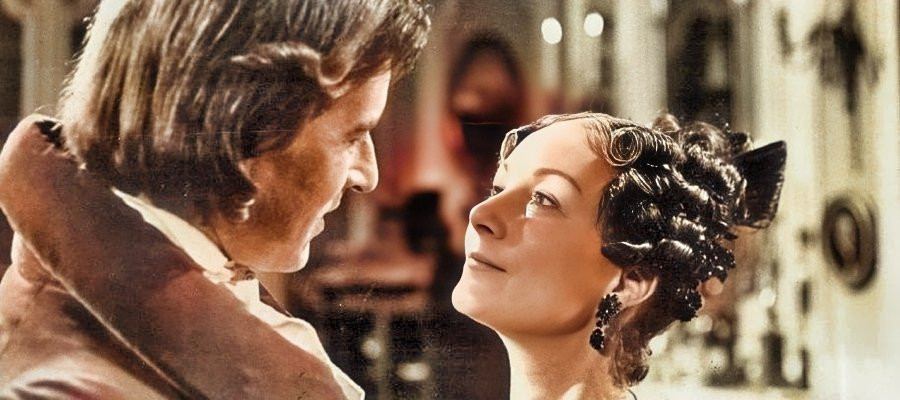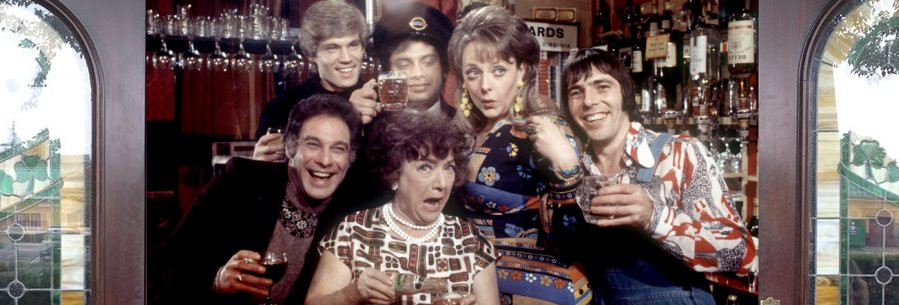
Notorious Woman
1974 - United KingdomThe BBC’s 1974 drama Notorious Woman brought to vivid life the extraordinary story of Amantine Lucile Aurore Dupin de Francueil—better known to the world as George Sand. A towering figure of the European Romantic era, Sand was once more celebrated in Britain than even Victor Hugo or Honoré de Balzac. Over the course of her career she produced more than seventy novels, alongside plays, tales, memoirs, and political writings, cementing her reputation as one of the most prolific and provocative voices of the nineteenth century.
The series traces Sand’s transformation from convent-educated Aurore Dupin into the notorious novelist who defied convention at every turn. Like her great-grandmother Louise Dupin, she championed women’s rights, denounced the strictures of marriage, and challenged the prejudices of a conservative society. Her choices scandalised polite Paris: she wore men’s clothing under a special police permit, smoked cigars in public, and insisted on her right to love freely, declaring, “My body is mine to give and I shall give it to whom I wish.”

The drama does not shy away from her turbulent romantic life, portraying her affairs with writers, actors, and politicians, and most memorably her long, complex relationship with Frédéric Chopin. Their winters in Mallorca and summers at her country estate in Nohant are depicted with both intimacy and poignancy, capturing the blend of passion and fragility that defined their bond.
At the heart of the series is Rosemary Harris, whose radiant performance as Sand earned her the Emmy Award for Outstanding Lead Actress in a Limited Series. Harris imbues Sand with wit, intelligence, and emotional depth, transforming a figure often dismissed as scandalous into a compelling, credible writer of substance. Her work remains one of the finest portrayals of a literary icon ever committed to television.

George Chakiris delivers a superbly sensitive Chopin, charting the composer’s decline with heartbreaking subtlety—an interpretation that rivals, and arguably surpasses, later screen depictions. Jeremy Irons, in an early role, adds quiet intensity, while Georgina Hale shines as Sand’s difficult daughter Solange. The ensemble cast, from leads to supporting players, elevate the production into something remarkable.
From script to final edit, Notorious Woman is a triumph of period drama. It balances the sweep of history with the intimacy of character study, presenting Sand not merely as a scandalous woman but as a revolutionary thinker whose life embodied the struggles of women to claim autonomy in a restrictive age. The production design and direction lend authenticity without ever overwhelming the human drama at its core.

Despite its international acclaim—broadcast on PBS’s Masterpiece Theatre in 1975–76, where it earned Harris both an Emmy and a Golden Globe nomination—the series has languished in obscurity in its home country. The BBC never repeated it, nor has it been released on VHS, DVD, or streaming and no reason has ever been given. This absence has only heightened its reputation as a lost gem of British television, remembered by those fortunate enough to have seen it and long sought after by admirers of both Sand and classic drama.
Verdict (2025 perspective):
★★★★☆
Notorious Woman remains one of the great unheralded achievements of 1970s British television. Through Rosemary Harris’s unforgettable performance and a script that captures both the scandal and the substance of George Sand’s life, the series offers a portrait of a woman who refused to be confined by her era—and of a drama that deserves rediscovery.
Seen this show? How do you rate it?
Seen this show? How do you rate it?
Published on November 2nd, 2025. Written by Laurence Marcus for Television Heaven.










